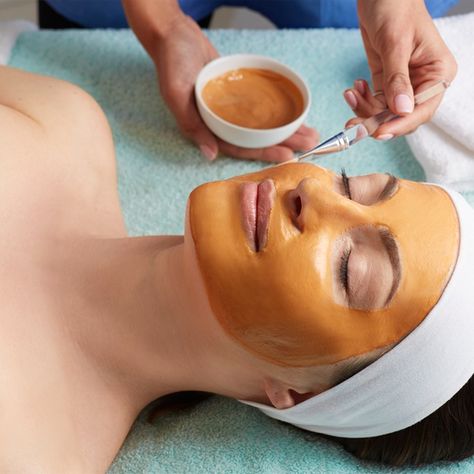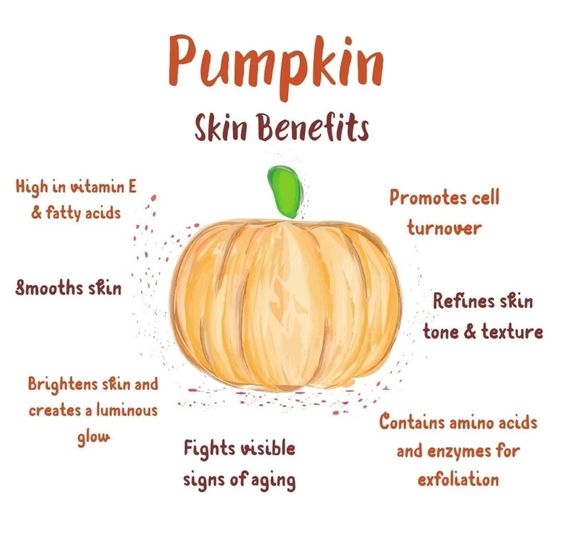|
5/17/2024 0 Comments What is Beauty?
0 Comments
12/2/2023 0 Comments Fierce Beauties redefining aging Two of my favorite clients, Sharon and Christina, shared this radiant photo of their recent adventure on the So. Oregon Coast. My heart glows with love and appreciation for the wise ways they live their lives. And this is a blog about skin, the body's largest organ...how does wisdom have anything to do with healthy, happy skin? Skin faithfully reflects the daily state of our choices; enough water, nourishment, moisture, cleansing. The skin on our lips stretches into a joyful smile, naturally lifting our cheeks, brightening our eyes and sending loving vibes to our friends. Skin asks us to care for ourselves kindly, with gentle touch, sunscreen and the self-talk of appreciation for the signs of our journey through time, whilst wearing a hat ; ) However much surgery, fillers, injectables we may try over time, none of that will bring the light into our eyes and the glow into our skin the way choices made with a wise heart will. Thank you Sharon and Christina, for leading the way from our late 60's into our 70's! We've got this! 4/16/2023 0 Comments Don't overdo it at home!
Moonshine Serum has been formulated with Niacinamide and Hyaluronic Acid as the perfect repair treat after a day of sun exposure. As many of my clients are ardent athletes and nature lovers, spending their time gardening, camping, hiking, surfing and all manner of cool outdoor summer activities, this product is a wonderful way to prevent drying out and crisping up into a leathery bronze when on the fly. It has a few simple ingredients that will perform under outdoor pressure and are convenient to throw in your backpack. How does it work? Niacinamide is one of few key ingredients dermatologists recommend for skin when it comes to general skin health! (quick note: Niacinamide is also in our Shea Butter Cream, combined with Resveratrol and an exquisite blend of herbs and essential oils for the ultimate nighttime repair. This complex and potent product is best not over heated!) Niacinamide is one of two forms of vitamin B3, AKA niacin, that’s found in supplements. Niacinamide is known to help with pigmentation from sun damage, acne, rosacea, wrinkles, and to minimize the appearance of pores. Niacinamide has been around for a long time, both as an oral supplement and topical agent, particularly because it is anti-inflammatory. As it stops swelling, redness and inflammation, fewer damaging oxidizing molecules are released into the skin. This means less sun damage and less breakdown of peptides, collagen and elastin. Because Niacinamide helps visibly fade age spots and dark spots, it does lighten the appearance of skin and is effective at managing discoloration. When it comes to benefits, Niacinamide does a lot for the health of your skin. This ingredient helps with skin cancer prevention. For a 2015 study in the New England Journal of Medicine, results showed that during the study year, there were 23% fewer new cases of skin cancer in the group that received niacinamide (336 cancers) compared to those who got the placebo (463 cancers).
CALL 541 621 7663 TO ORDER  My 18 year old friend and I spent the day in 100 degree weather yesterday, cooling off in the blissful waters of the Sacramento River in Shasta. As you can see, she has beautiful skin and although not wearing her hat, was fully protected with land and reef friendly 40 SPF Badger sunscreen. After a full afternoon of play in the water, she was happily burn-free. Probably the least fun sunscreen to wear, it is by far the best choice. It is simply 98% organic, broad spectrum, water resistant, unscented, hypoallergenic minerals. Although it says Clear Zinc on the tube, there is really no such thing. You will be smearing a white film on your skin that will be heavy and noticeable and repel water. However, you will not burn! Neither will you kill any living creatures or organisms in your efforts to protect yourself. There are just a handful of sunscreen products on the market like Badger and I highly recommend you choose these ones. Using SPF daily when we are barely outdoors is unnecessary, clogging to the skin and if light and thin enough to be mixed in with a moisturizer, will be a chemical and almost impossible to be healthy for you or the planet. Take your SPF seriously, buy the real deal and DON'T FORGET YOUR HAT! 6/16/2021 0 Comments Red light success!Hard to improve on my client Fenella's radiance yet we were both thrilled with the results today from her 90 minute session with micro current, ultrasonic exfoliation and red light therapy!
Do you sometimes feel as if your skin has a mind of its own? Being a skin detective can be confusing and lead us down product rabbit holes of glossy packaging and outrageous claims. Let's explore a better understanding of the biology of the skin to help us to treat the skin as a living organ with its own microbiome, intimately connected to our overall health and well being.
At conception, cells divide and develop from a single layer of embryonic tissue, interconnecting the brain and the skin. They are bound together for life. When one senses embarrassment, the other blushes. When one senses pain, the other processes it. And when one bears the burden of a pandemic, political unrest, systemic racism and the ever worsening effects of climate change, the other gets a pimple or, depending on your genetic predispositions, an eczema outbreak. A psoriasis flare-up. A bout of rosacea. A dehydrated, dull, oily skin or new wrinkles. This is your skin on stress. A quick surge of stress may heighten your senses, enhance mental clarity and help create collagen to facilitate wound repair. It’s there and it’s gone. It’s the chronic, continuing stress, the kind that every sentient being is likely experiencing right now, that takes a toll on the skin. It takes a toll on the entire being, of course, and a compromised skin is the least of its consequences. But if you like healthy skin, read on! Much of the skin-psyche connection comes down to the overproduction of cortisol, the primary stress hormone, and its effect on the acid mantle, the natural skin barrier created by our bodies. The skin barrier traps moisture in and keeps allergens, irritants and pollutants out. It effectively does the job of many hyped skin-care products on the market, without products, and needs three things in order to thrive: oil, water and the microbiome. Cortisol depletes them all. During times of stress, cortisol can both slow and over stimulate the production of beneficial oils. Slowing down oil production leaves the skin dry, rough and much more irritated because those healthy oils act as a protective layer. As we age, we produce less oil and without adequate lipids to seal in hydration, the skin experiences transepidermal water loss. At the same time, cortisol can over stimulate the production of sebum, our natural oil, an excess of which is implicated in acne. Younger skin is more inclined to this imbalance, but it can happen at any age when our microbiome is compromised. Skin feels more oily when we’re under stress, and it’s more prone to imbalance and breakouts. All of this alters the acid mantle pH and creates an inhospitable environment for the one trillion symbiotic micro-organisms that exist on and in the skin barrier, otherwise known as your Microbiome. Under ideal conditions, the microbiome renders topical skin care all but superfluous. There are microbes that feed off sebum, which helps sustain healthy oil levels. There are microbes that feed off dead skin cells — the original exfoliators! There are microbes that produce peptides and ceramides, two beauty ingredients that keep skin firm and moisturized. There are microbes that offer protection from pollution, sunlight and invading pathogens. If you’re not producing enough of those healthy fats and not maintaining a healthy barrier though, you’re altering the terrain on which these microbes grow and thrive. Imagine stripping the soil of all the nutrients and seeing if your vegetable garden is going to grow. It’s the same for the skin. In turn, the microbiome may experience an overgrowth of so-called bad bacteria (like C. acnes, the strain associated with acne) and a dearth of good bacteria. The microbiome becomes more prone to infection, irritation, inflammation and hyperpigmentation. It becomes more sensitive to outside aggressors, like the free radicals generated by pollution. Stress prompts the body to produce internal free radicals, as well. “You can think of free radicals like little missiles,” quotes Dr. Bowe, a dermatologist . "They target cells for destruction and cause oxidative stress. When free radicals target DNA, it leads to skin cancer. When free radicals target elastin and collagen, it leads to fine lines and wrinkles. When free radicals target lipids, it leads to dehydration and skin barrier damage and acne." It is better to remove barrier-degrading ingredients like glycolic acid, salicylic acid, benzoyl peroxide and retinol from your skin care routine, to prevent depletion of the skin's normal, healthy barrier function. Chronic exposure to cortisol also inhibits the production of hyaluronic acid and collagen. These are what keep the skin plump and youthful. When you can’t make enough, the skin gets thinner. “Most products are meant for consumers who have a healthy skin barrier,” said Ron Robinson, a cosmetic chemist. "Exposing an already broken barrier to active ingredients — or too many ingredients — only exacerbates existing issues." Managing stress may seem nearly impossible considering that so many modern stressors are systemic," according to Dr. Heather Woolery-Lloyd, a dermatologist. “90 percent of our stress is not the stressor itself, but how we deal with that stressor.” Meditating, Dr. Woolery-Lloyd said, initiates a relaxation response, which activates the body’s parasympathetic nervous system and decreases cortisol and inflammation. Breathing, which may beat drinking water as the most eye-rollingly simple yet undeniably effective skin-care tip, is enough. Dr. Herbert Benson's research at Harvard Medical School shows that taking slow, deep breaths triggers the relaxation response and he says“can stop psychological stress from being translated to physical inflammation in the skin.” Don't watch the screen right before bed as the blue light emitted from electronics interrupts your circadian rhythm and leads to lower-quality sleep, which is linked to increased cortisol, free radical damage and inflammation. Something as simple as sleep can change the skin barrier. To address and prevent free radical damage, fill your plate with antioxidants, which stabilize these unstable molecules to leave skin clearer, calmer, brighter and more even toned. Vitamins A and C (abundant in fruits and vegetables), lycopene (found in tomatoes), astaxanthin (salmon) and polyphenols (green tea, dark chocolate) are all great options. Our bodies increase antioxidant activity with exercise. Movement lowers cortisol levels, meaning fewer skin issues and a stronger skin barrier. And if you’re exercising outdoors? Even better. “I’m a big believer in the healing power of nature,” Dr. Woolery-Lloyd said. “Just going outside and seeing a tree and looking at a few birds is proven to lower inflammatory markers in our body.” If all else fails, cry. “Crying is a stress reliever and helps decrease cortisol levels,” said Dr. Purvisha Patel, a dermatologist. “This can result in fewer breakouts.” These are things we can do for our skin and ourselves that don’t cost anything, but the reward is great. Much thanks to Jessica DeFino and her article in the NY Times "Mind and Body Woes Rise to the Surface" |
Search by typing & pressing enter






 RSS Feed
RSS Feed